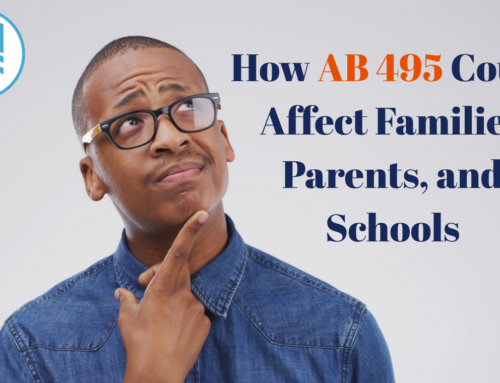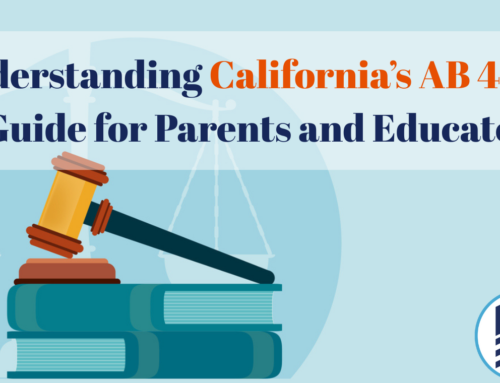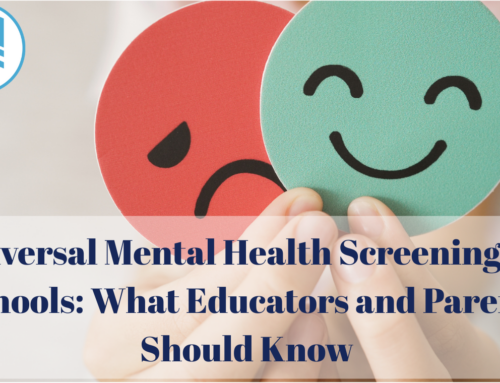
Educators see many of the ins and outs of their students’ family lives. As they come to know their students, observe their daily interactions, and keep a caring eye out for tell-tale signs of good and bad parenting, they form a decent mental image of the personal lives of the kids they care for. Teachers often have the scoop on what’s up, from overly-involved helicopter parents to utterly detached parents.
It’s no secret that when the parents are appropriately involved in their child’s education, statistically, the student is more successful. Parental involvement is undeniably beneficial for students. Experts, years of studies, and common sense have affirmed that parental involvement in a child’s education is significant on many levels.
But what about kids whose parents have simply detached themselves from their child’s educational experience? Or worse, what about kids whose parents simply don’t care, are objectively bad parents, or are even completely absent from the picture?
Is there hope for these kids? How can educators help?
Understanding Can Go A Long Way
As hard as it can be to be understanding, a good first step for a concerned educator is to assume there’s something that you’re missing. While there are neglectful parents out there, there are also parents who are simply overwhelmed, don’t know how to be involved, or don’t even realize they should be.
Many parents ship their kids off to school and assume they should leave education to the professionals. After all – educators have degrees, certificates, and experience, right? What can a layman do that isn’t better done by school officials?
It Takes A Village to Teach A Child notes, “You never know why a parent may seem disinterested unless you get to know the parent, if possible, and listen to them. There may not be much you can do with the truly terrible parents, and it’s hard not to judge, but you may find that by ‘first seeking to understand,’ and by withholding judgment, you may be able to unearth reasons why the parent seems apathetic but actually does care. If you can do that, you have a chance of finding ways to make home-school communication more comfortable and welcoming.”
This is truly wise advice.
However, educators should always recognize signs of true neglect or abuse. It’s estimated that 1 in 15 children is exposed to domestic violence every year, and teachers can help protect these kids by being on the lookout for tell-tale signs. Detached parenting doesn’t equal neglect or abuse by any means, but neglect and abuse can include parents who are detached and refuse to be involved on any level.
We Are Teachers reminds their fellow educators that “there are times when neglect is a real concern. If kids aren’t getting food or clean clothes or necessary medication, it’s time to make a report…the goal is to help the family and provide the kid with resources, not pass judgment on families that don’t seem adequately supportive.”
If possible, find ways to interact with your students’ parents and attempt to understand why they aren’t more involved in their child’s education. Once you know the root cause, it will be easier to find a solution.
Ways to Encourage Parents
Some parents don’t know how to be involved or just need a bit of positive encouragement to take the first step. Educators can help facilitate new engagement through a few different strategies. Parental involvement can be defined as “the active, ongoing participation of a parent or primary caregiver in the education of his or her child.”
With this goal in mind, consider these approaches.
Invite Participation
Good parents who have detached themselves from their child’s education may simply need the invitation to jump back in! Whether they simply don’t feel it’s their job, they feel unqualified, or they’ve had bad parent/teacher interactions in the past, a welcoming note of invitation could get that train chugging back out of the station.
Inviting parental involvement in their child’s education is such a big issue in our schools that even Wikihow created a post to address it! From personalized communication to avoiding common (but possibly confusing) jargon, they suggest numerous strategies for effectively inviting parents to join you as an educational partner.
Make It Easier
Try inviting parents to talk with you about any concerns or specific hopes they have at the beginning of the school year. Offer flexible communication options. Not everyone can make meetings in person, and our society’s plethora of social disorders make alternative meeting options (such as Zoom, voice messages, or even personal emails) likely tools for success.
We Are Teachers suggests a few strategies, such as consolidating events (accomplishing more than one goal per meeting), having translation materials for those struggling with English as a first language, offering food, or even providing toys or activities for younger siblings who may need to tag along.
The point is to let parents know that you welcome their participation and find ways to make them comfortable doing so.
Praise Success
Everyone appreciates sincere acknowledgment of their efforts. When a parent is involved, no matter how minor that involvement is, teachers can reinforce this behavior through open and honest praise. Recognize their effort and specify its positive effect on the child or their education.
Some parents simply need to know they’re doing something right to build the courage to make a bigger investment. Partner with them and encourage these parents to continue their efforts.
Sometimes It Just Doesn’t Happen
But what about the kids whose parents genuinely have no interest in ever becoming involved or who truly can’t become involved because of work, family, or health difficulties? Are these kids lost causes?
No.
Educators have tools and strategies at their disposal to help these kids succeed regardless of their detached parents. Let’s examine a few possibilities.
Build A Team
While parents are the best option for student support outside the classroom, other adults willing to step in and help out are excellent replacements. Start helping each child by cultivating a team of concerned adults willing to be involved.
The local community, other adults in the child’s life, and even other school faculty can all be possible team members.
We Are Teachers suggests, “…maybe there’s a mentor, an older sibling, a pastor, or a coach who would love a chance to take an active role. Talk to kids. Find out what they’re interested in and figure out ways to get other supportive adults to be a part of the solution…. Religious organizations, community groups, and school alumni can all be valuable resources for kids in need of positive role models.”
When a student is surrounded by a support system they know they can count on, they are far likelier to succeed. Parents are best, but sometimes we have to aim for the next best thing, and that’s OK.
Offer Resources
When parents aren’t involved because of time, money, health, family concerns, or some entirely different reason, resources may be an issue. You may be able to help your struggling student by finding and offering useful resources.
Do they need a tutor to help with homework or to fill the parent-shaped support need? Help them solve this problem by guiding them to school resources that address this problem.
Are the parents overworked, underpaid, or worried about where the next meal is coming from? Perhaps see if the school welfare budget or community organizations offer financial aid or resources for food and other necessities for struggling families.
Does the child miss out on school functions or outings due to financial or transportation difficulties? Find out what resources the school has for these situations.
By helping to solve relevant problems usually handled by involved parents, you can help these kids overcome huge barriers and strive for success regardless of their circumstances.
Recognize the Symptoms and React Appropriately
When kids are left to their own devices, neglected, or simply feel like they don’t have the support they need, they’ll often become more and more demanding of those around them. While some kids really have no excuse for how they choose to act, in most cases, kids who need extra attention, act out, or require additional help have an underlying need.
Kids with detached parents may make your teaching job more difficult, but they can also be asking for help in the only way that they know how.
“It’s tough because frequently the kids most in need of structure and consistency are the kids who have the least in their home lives,” notes We Are Teachers. “…The parents of the kids who are failing are sometimes the ones who won’t make kids do their homework. Just remember, despite the frustration, to come from a place of compassion when dealing with kids. It’s not their fault.”
It’s A Tough Gig
Teaching isn’t an easy job. Many teachers echo Bilbo Baggins as he described feeling stretched to his limit, “like butter that has been scraped over too much bread.” Educators care about their students and can often feel alone and helpless in the sea of needy children and academic expectations.
Students without parental support are feeling the same way as they attempt to navigate their education without the proper support, structure, or developmental knowledge.
Teachers face a daunting task, finding ways to help these kids excel despite their circumstances. The good news is that most parents do care, even if they don’t know how to show it! Teachers must seek to help these parents break the barriers keeping them from becoming a member of their child’s academic team.
When parents really can’t or won’t become involved, teachers must find practical ways to breach that gap and help the kids with detached parents. These kids matter, and the work that educators do in this field is vital to these students’ success.





Fantastic web site. Lots of useful info here. I’m sending it to
a few friends ans also sharing in delicious. And naturally, thank you for your effort!